Relevant Overviews
- Communication Strategy
- Content Strategy
- Online Strategy
- Online Community Management
- Social Media Strategy
- Content Creation & Marketing
- Digital Transformation
- Innovation Strategy
- Surveillance Capitalism, Social media and Polarisation (Overview)
- Communications Tactics
- Psychology
- Social Web
- Media
- Politics
- Communications Strategy
- Science&Technology
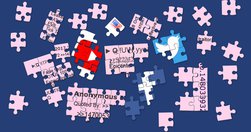
“It’s so easy to feel you’re special or in on something.” - James Wolfe, 45, who was "introduced [to Qanon] by a friend to the idea in late 2017... [when he] was recently unemployed and recovering from a serious physical injury", and quickly "started spending as much as eight hours a day" before recovering "from QAnon aft…

echo chambers and epistemic bubbles... systematically exclude sources of information... exaggerate their members’ confidence in their beliefs... work in entirely different ways... epistemic bubble is when you don’t hear people from the other side. An echo chamber is what happens when you don’t trust people from the other side...‘epistemic bubble’ …
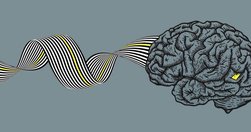
How fake news gets into our minds, and what you can do to resist it... to understand why it gets into our mind... by examining how memory works and how memories become distorted.... Fake news often relies on misattribution ... we retrieve things from memory but can’t remember their source... one of the reasons advertising is so effective... Repe…
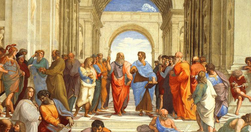
we evolved to solve complex problems not independently but dependently in a group setting.... the knowledge illusion... much of our “knowledge” is not knowledge in the sense of understanding how things work but ... faith... in other people -... smart people with PhDs... whatever - who I trust to know these things that I do not know.... for tho…

Fighting people with facts only makes them cling to their beliefs more strongly, further polarising our damaged societies. Different tactics are needed, and they start closer to home than you think.
I’ve been meaning to blog about the ‘backfire effect’ cognitive bias since first coming across it last December. It went to the top of my ToBlog list thanks to a little serendipity...

To some liberals, Donald Trump’s inauguration portends doom... to many conservatives, it’s a crowning moment ... as if each side is living in ... a different reality.... information avoidance... all of us ... ward off any new information that makes us feel bad, obligates us to do something we don’t want to do or challenges our worldview... we’re …

A work in progress from an upcoming eponymous post. Another experiment with the enewsletter format: some initial thoughts on this seemingly intractable problem, with some of the source materials I’m studying.

Echo chambers aren’t just a product of the internet and social media, however, but of how those things interact with fundamental features of human nature... Understand these features of human nature and maybe we can think creatively about ways to escape them... our tendency to associate with people like us. Sociologists call this homophily.... t…
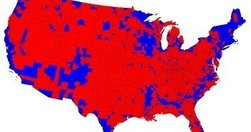
How to make sense of Donald Trump’s election? Here are some articles which helped me. Maybe they’ll help you.
In which I studiously avoid curating anything about 2016 or David Bowie.
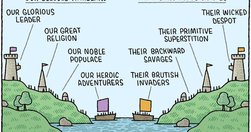
the idea that everyone is like us is called the “false-consensus bias.”... Online it means we can be blindsided by the opinions of our friends or, more broadly, America... morphs into a subconscious belief that we and our friends are the sane ones and that there’s a crazy “Other Side” ... that just doesn’t “get it,” ... not as intelligent as “us.”…
Relevant Overviews
- Communication Strategy
- Content Strategy
- Online Strategy
- Online Community Management
- Social Media Strategy
- Content Creation & Marketing
- Digital Transformation
- Innovation Strategy
- Surveillance Capitalism, Social media and Polarisation (Overview)
- Communications Tactics
- Psychology
- Social Web
- Media
- Politics
- Communications Strategy
- Science&Technology